
Wicked was once a word used for evil acts and descriptions of Disney witches. But then it flipped and became a positive affirmation meaning something was really good.
Changes in definition like this often tell you what generation someone is from, but sometimes that can bring about conflict and generational divide. Like the word ‘queer’.
Use of that word came up for debate again after we used the term in a piece about the nominations for the 2025 Metro Pride Awards.
Reader Derek from Gospel Oak didn’t like it, saying that it ‘was and still is the most vile word’.
Younger people have reclaimed the word, but Derek believes that not everyone in the LGBTQ+ community is ready for this – the pain is still too fresh.
Here, Metro speaks to people in the LGBTQ+ community to discuss what the word ‘queer’ means to us, and – with utmost respect to the elder community – we discuss in our pieces, how the word makes each of us feel.
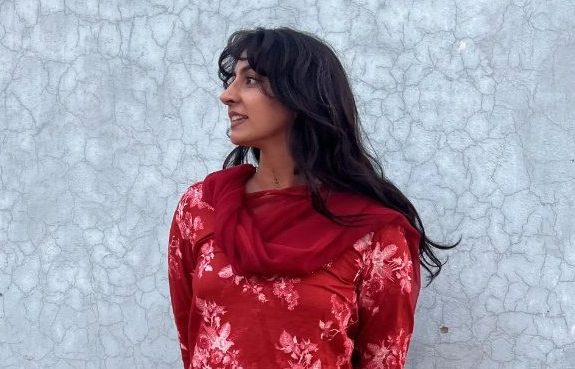
Sharan Dhaliwal
Sharan is a writer, author and founder of Middlesex Pride.
Join Metro's LGBTQ+ community on WhatsApp
With thousands of members from all over the world, our vibrant LGBTQ+ WhatsApp channel is a hub for all the latest news and important issues that face the LGBTQ+ community.
Simply click on this link, select ‘Join Chat’ and you’re in! Don't forget to turn on notifications!
When I came out, I did so as bisexual because it was the closest word that I felt represented me.
I knew I was attracted to all genders, no matter who they are… except for straight men. (That’s not to say that I don’t think straight men are attractive – I have stared for too long at photos of Pedro Pascal – but I just can’t imagine spending my life with them).
But, in all honesty, the word ‘bisexual’ has never felt like it is mine and I soon found myself looking for something else to connect with. I was, and always will be, still figuring life and my sexuality out.
Then, about a year after coming out, and after talking with another bisexual friend about the state of my dating life, I decided to start my own LGBTQ+ speed dating event called Oh Queer Cupid.
It was a clever play on words, I thought, patting myself on the back. As I continued doing the events, and I said the ‘queer’ more and more, I reckoned with my understanding of the word and its history.
While acknowledging that its social history was fraught in harm, I began to learn about its political history. The LGBTQ+ community reclaimed the word and began using it in activism – something I became a big part of.
To me, queer is a sexuality or gender that doesn’t abide by societal norms, and it’s a political statement.
But it was while hosting one of the monthly events that an older dater queried my use of the term.
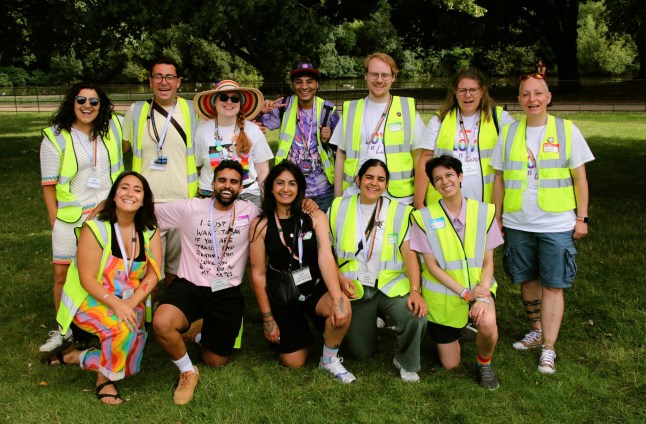
He asked me: ‘Are you comfortable saying queer? Because it was different for me. It was harder for me.’
As we discussed it, the word felt heavy between us.
I’m 40 years old and in my lifetime alone queer has been used as a slur – not to me personally (I didn’t come out until my 30s) but to people around me.
He told me he noticed younger people used it more and more and he had questions. He didn’t feel angry, he just wondered why.
I opened the question to the rest of the daters and someone said something that has stayed with me ever since. They said: ‘We’ve taken it back, but with respect. We’re still fighting alongside you, we’re not forgetting you.’
Since that day the word ‘queer’ has sat differently – although I began to understand it politically and historically, I finally brought both elements together.
I now feel a strength and a power in it. I feel like all the hate that came alongside it turned into community care – like the whole queer community picked the word up and hugged it.
It felt safe. And importantly, it felt right for me to say.
Although the term bisexual can encompass all the elements of my sexuality, it still feels a bit off. Queer, though, holds my sexuality with a love that I desperately needed.
My using the term does not negate the pain that the word has represented for much of our community’s history. But I want to take that pain and wear it on my chest.
I want to join the fight, and respectfully hold our history, while making a statement about who I am.
I’m queer, and there’s nothing you can do to change that.
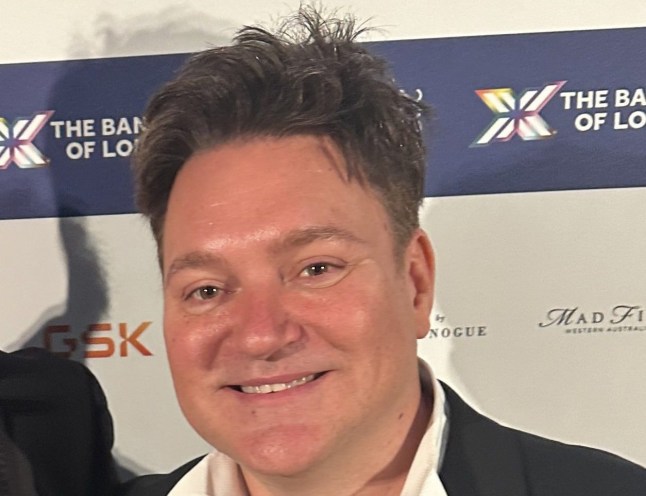
Aubrey Crawley
Aubrey is an LGBTQ+ Officer for Labour and the founder of West London Queer Project.
‘West London Queer Project??’
I was running a stall at the Hammersmith summer street festival in June 2024 for my organisation when an older woman approached me, pointing at our sign and reading it out loud in disgust. She seemed visibly upset and part of me understood why.
She explained that as a 60-something lesbian, who had survived an onslaught of discrimination, she was utterly offended to see the very word targeted at her with hate, printed largely on the banner of an LGBTQ+ organisation.
While I didn’t think holding that much anger was good for her, I understood some of what she was saying – as a 48 year old, who grew up in South Africa in the 1980s and 1990s, I experienced my fair share of the slur too.
Queer has been an incredibly derogatory term in South Africa, and in fact, all across the world. It literally means ‘strange’ but was used from the 1970s onwards, as a tool to discriminate against the LGBTQ+ community.
It’s only since the late 1980s and the early 1990s that an effort was made to reclaim it – activist group Queer Nation was one of the first, creating the famous LGBTQ+ chant: ‘We’re Here! We’re Queer! Get used to it!’.
Nonetheless, I still experienced it – I was 16 years old when I came out, and there were a few isolated incidents of when the term was used against me. I remember when I was with my fellow queer friends, just hanging out, when a group of straight men walked past and muttered ‘f***ing queers’.
We laughed it off – I realised early on that a big part of accepting myself included overcoming the names people called me, so I consciously didn’t give any power to words.
But discrimination was rampant, and there were plenty of terms that homophobes used other than queer. When getting on a bus to the city, sitting at the bus shelter, I saw the words ‘Aubrey is an f-word’ scratched onto it. Besides the initial shock from seeing my name, I let it wash over me. At the time, I was losing so many friends to suicide, I felt like I had to be strong for them and rise above it all.
I eventually left South Africa and moved to West London in 1998 aged 21. I was immersed in West London’s thriving LGBTQ+ community but over time, they all began to disappear.
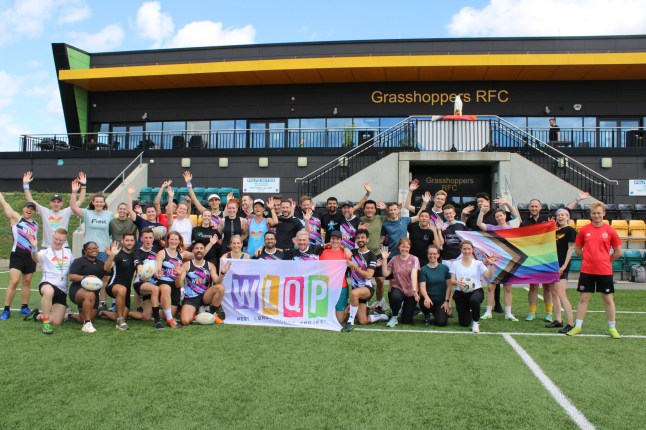
So, in 2020 I started an organisation to address the sudden lack of visibility, and in four years West London Queer Project (WLQP) have hosted over 600 events – including comedy and drag shows, cinema sing-alongs and mental health workshops, amongst many more.
It’s become one of the best things I’ve ever done and my life is chaotic but so enjoyable from it. People have approached me during events to tell me how WLQP has changed their lives.
But, when I kickstarted WLQP, I wasn’t sure what to call it. I realised at the time, ‘queer’ was used freely by the community, and I didn’t want to dispute that. However I was aware that a lot of terminology from South Africa didn’t translate in the UK, and I was cautious about offending people.
It meant I was made uncomfortable in my own interpretation of the word. I wrestled with the name and at times, it still feels uncomfortable to say out loud. But I felt like I had to embrace the way the world was changing and so, the West London Queer Project was born.
I remember telling my parents, by phoning them back in South Africa and before they could even react, I explained how the word was being reclaimed. It still took them a while to come round to it.
It’s definitely generational. Older people like myself can feel uncomfortable with it. Younger people seem to have taken it back.
But I’ll never forget my history with the word, and never deny the discomfort and disgust felt by the older LGBTQ+ community – just like that 60-something lesbian who told me off.
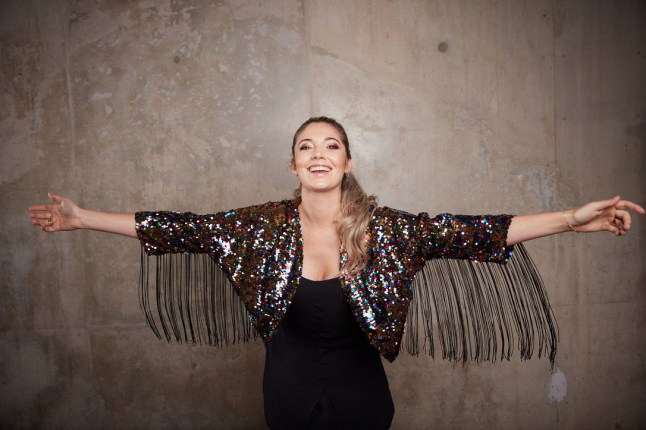
Dr Julia Shaw
Dr Julia Shaw is a psychological scientist and author of the book Bi: The Hidden Culture, History, and Science of Bisexuality.
I love being bisexual. And I say it all the time. I even wrote a book about it where the term ‘Bi’ is written in big bold letters right on the front.
And I too use the term queer sometimes, when I want to signify that I’m part of a larger movement. There is strength in numbers, undoubtedly.
But, for me there is something missing from queer that is captured in ‘bisexual’.
The term queer has a long history of being defined by what it isn’t; it is the antidote to compulsory heterosexuality, and the opposition to society’s expectations regarding how we should exist in the world. It is resisting rigid ideas of gender and sexuality and allowing for a visual language that often encourages radical forms of self-expression.
However, when I did my degree in queer history, we spent considerable time discussing how defining queer effectively leads to it losing its meaning.
Is queer, when put in a box, still queer?
Whenever I use the term queer I feel that I am paying tribute to its historical significance as a reclaimed counterculture term. Once used as a slur to signify that we were different in a bad way, now claimed as our own celebration of that difference.
The problem is that when a term is so broad, it can swallow the unique experiences of its components. Celebrating what we have in common should not lead to the erasure of what makes each of these identities special.
For example, being a gay man in the world is very different from being a bi man, or a lesbian woman.
In fact, pretending we are all the same can be dangerous.
Bisexuality is defined as the sexual and/or romantic attraction to people of more than one gender. The bi in bisexual comes from when the term was first used at the end of the 1800s to capture people with both same-sex (homosexual) and other-sex (heterosexual) attraction.
But being bi comes with unique benefits and risks.
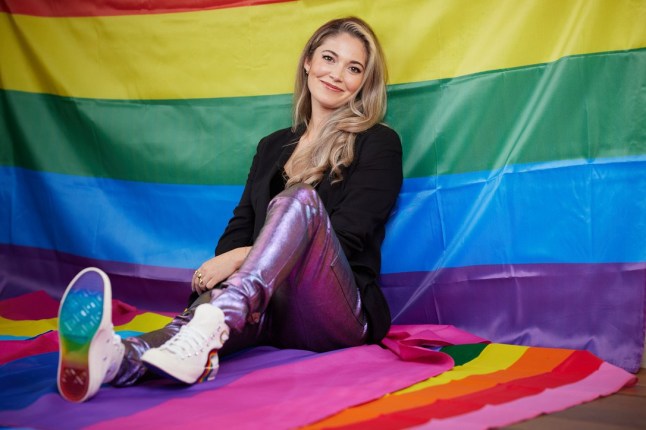
Specifically, it often suffers from exclusion by inclusion, and if we assume that general queer education or awareness is enough to understand these nuances, we are ignoring important conversations around independent identities.
In my book I explain that people often forget to talk about bisexuality in conversations around human rights, where bi people are presumed to just be able to choose to be straight.
And that sex education rarely covers bisexuality, which is a problem because of the continued hypersexualisation of bi women, which leads to significantly elevated rates of sexual violence.
There is also a lack of representation of bi relationship structures. A woman in a relationship with another woman is presumed lesbian. A woman with a man presumed straight.
There is little that prepares bisexual people for the reality that, if they want to be out, they need to actively come out to their romantic partners otherwise they will typically be presumed to be gay or straight.
Bi parents also need to actively come out to their own children, and research has found that they often struggle to know when and how to do this.
More Trending
This is not something that other queer people are as likely to experience.
To be perceived as bi is to say it out loud. Repeatedly. To come out over and over again to people who are pleasantly surprised or, sometimes, unexpectedly hostile.
But it is only when we say it out loud, and use the word bisexual, that we can find each other and normalise our existence.
And if there is one thing I have learned, it’s that saying you are bisexual means you will find your heart grow. To say you are bisexual is to embrace a unique kind of freedom.
Do you have a story you’d like to share? Get in touch by emailing jess.austin@metro.co.uk.
Share your views in the comments below.
MORE: England star Marc Guehi avoids FA charge for adding ‘I love Jesus’ to rainbow armband
MORE: My mum thought I’d died as a baby – but someone had stolen me
MORE: Why Ridley Scott’s 2005 Crusader flop is a far superior film to Gladiator













